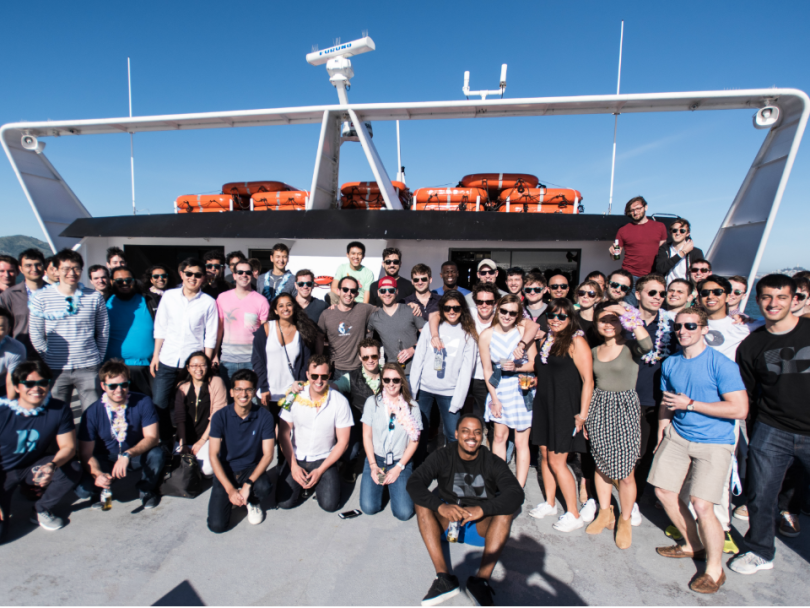
At a company as fast-growing as software firm Palantir, every new day is bound to be as different as it is exciting. The company builds software that lets government, commercial and nonprofit organizations use vast quantities of data to solve their problems at lightning speed.
Built In NYC chatted with Forward Deployed Software Engineer Randall Dorin to learn more about the solutions his team is developing on a daily basis for industries like healthcare, aviation, finance and more.
Q: Can you tell me a bit about your background? How did you first gain an interest in engineering? What is your educational background?
I knew I wanted to be an engineer from my teenage years. I've always enjoyed solving problems and puzzles and taking things apart (though I’m rarely able to put them back together again). I was the kid who created levels for video games and made up new board games from multiple old ones. I would be the Dungeon Master in Dungeons and Dragons and make up the campaigns for my friends. I had creativity but lacked the talent to be an artist — so I gravitated toward engineering.
My parents were physicians, not engineers, but I grew up with computers. We had both a 386 and 486, and I was allowed to plan and upgrade their parts. Somewhere along the line, I fixated on electrical engineering as a career, and didn't deviate in college. “Introduction to C” was the only required course, and it was not designed to spark an interest in programming. It wasn't until after I graduated that I learned the power and utility of software, and chose it's shorter development cycle over physical design and fabrication. Like most of us, I learned the engineering part of software while working; I just happened to also learn data structures, control structure and algorithms there as well.
Q: What drew you to apply for a position at Palantir? Can you describe the interview and onboarding process?
I applied for a position in Washington, D.C. about 8 years ago. At the time, I was living and working in the area as a software engineer for a large defense contractor. I generally worked in the counterterrorism space and found the work rewarding, but I was fed up with the business model of large government contractors. I was planning to start a company with a friend when I happened across a Palantir ad. I recalled that they also worked on meaningful problems, so I decided to apply. In a nutshell, what drew me to Palantir was the opportunity to help keep our citizens safe, but in a Silicon Valley environment.
Q: Walk me through any interesting projects you've worked on at Palantir.
After I moved to New York, my first project was working on a three-month pilot deployment with a retail energy provider in a large U.S. city. In this city, the energy market is an open market, meaning that you're able to choose who supplies energy to your home. As a software engineer, I've never considered what happens when I flip on my light switch. How does the power grid actually work? How is energy supplied and metered? How do the companies that generate electricity interact with the companies that own power lines? One of the cool rewards of being a forward deployed software engineer is that just by doing my job, I learn about the core industries that we all rely on in our everyday lives.
On top of learning about the industry, our client works with really fascinating data — customer's gross consumption, billing, smart meter data, weather data, the cost of power throughout the day, etc. When we first arrived, we had to focus on what problem we should tackle in 90 days. We started by interviewing the client and reading as much as we could about the energy market. A couple of prototyping solutions we worked on included apps to control home power remotely, and Tesla batteries that sent unused energy back to the grid.
Q: What is unique about Palantir’s culture?
The culture at Palantir is unusual in that it is so empowering. It is a relatively non-hierarchical organization. At past jobs, I would point out problems to my manager and hope that they would resolve them, relying on and limited by the hierarchical structures in place. At Palantir, I see a problem, debate the root cause and offer possible solutions, which my colleagues and I implement.




